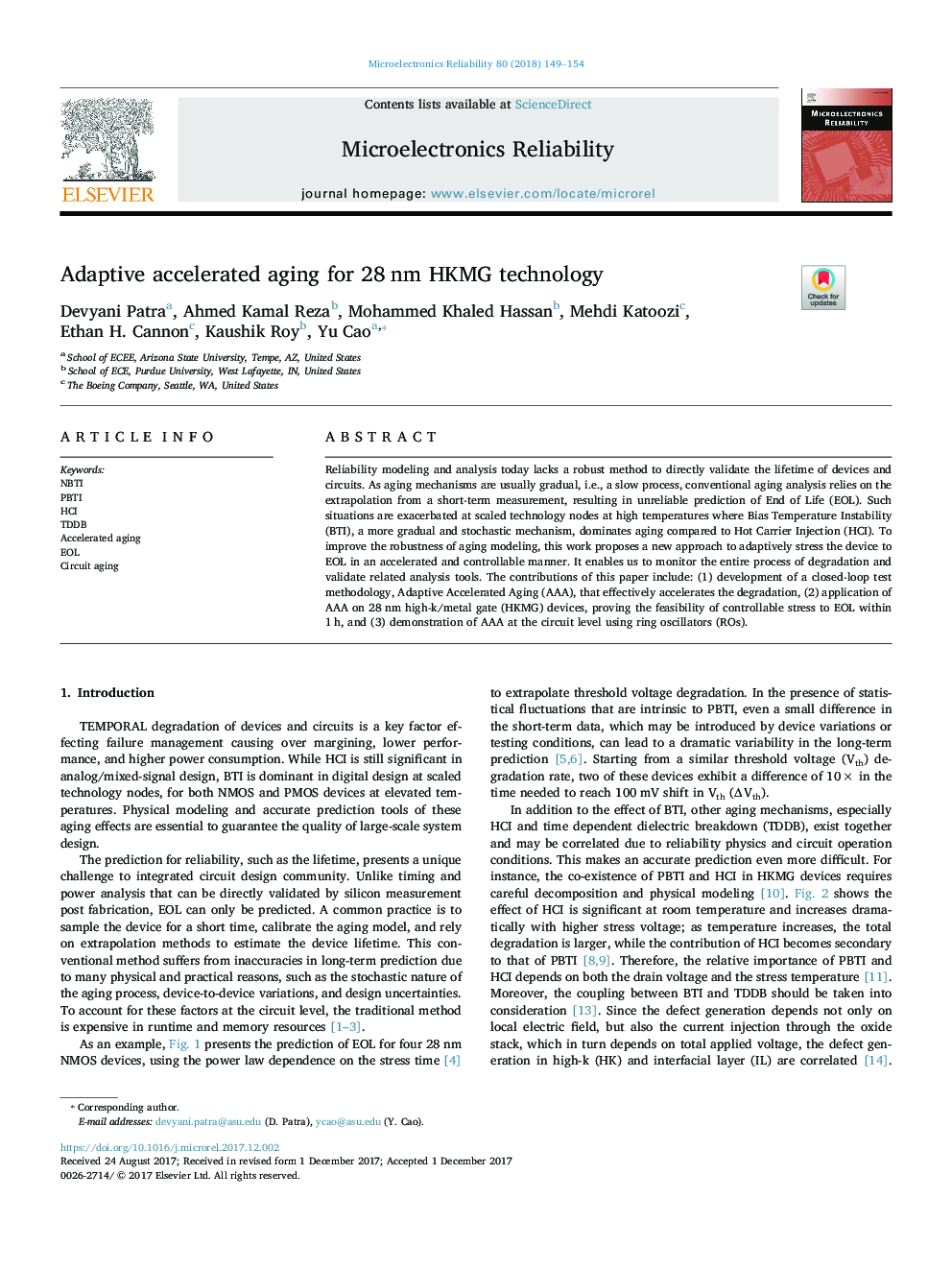| Article ID | Journal | Published Year | Pages | File Type |
|---|---|---|---|---|
| 6945971 | Microelectronics Reliability | 2018 | 6 Pages |
Abstract
Reliability modeling and analysis today lacks a robust method to directly validate the lifetime of devices and circuits. As aging mechanisms are usually gradual, i.e., a slow process, conventional aging analysis relies on the extrapolation from a short-term measurement, resulting in unreliable prediction of End of Life (EOL). Such situations are exacerbated at scaled technology nodes at high temperatures where Bias Temperature Instability (BTI), a more gradual and stochastic mechanism, dominates aging compared to Hot Carrier Injection (HCI). To improve the robustness of aging modeling, this work proposes a new approach to adaptively stress the device to EOL in an accelerated and controllable manner. It enables us to monitor the entire process of degradation and validate related analysis tools. The contributions of this paper include: (1) development of a closed-loop test methodology, Adaptive Accelerated Aging (AAA), that effectively accelerates the degradation, (2) application of AAA on 28Â nm high-k/metal gate (HKMG) devices, proving the feasibility of controllable stress to EOL within 1Â h, and (3) demonstration of AAA at the circuit level using ring oscillators (ROs).
Related Topics
Physical Sciences and Engineering
Computer Science
Hardware and Architecture
Authors
Devyani Patra, Ahmed Kamal Reza, Mohammed Khaled Hassan, Mehdi Katoozi, Ethan H. Cannon, Kaushik Roy, Yu Cao,
